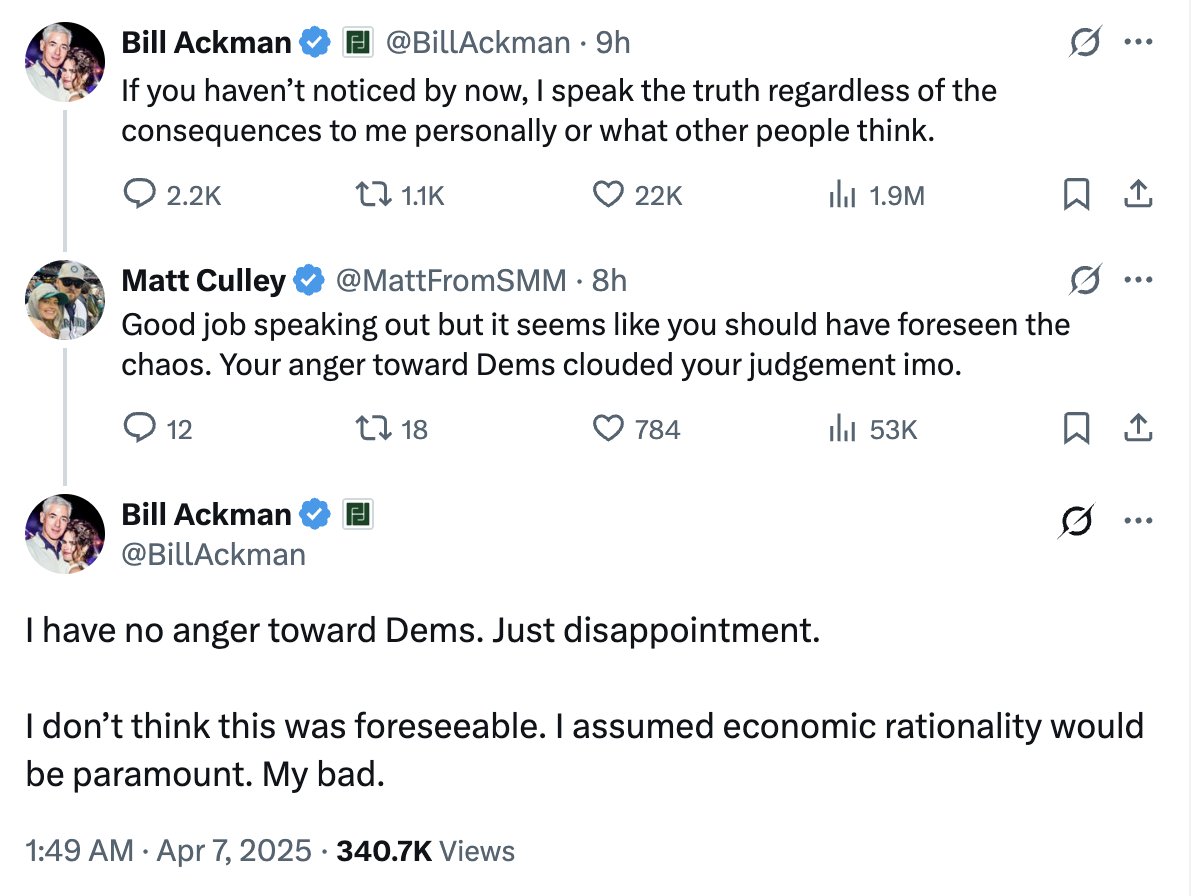Seizing Opportunity from Chaos
I have always said — and reiterated, in some form, on Friday — that the most immediate way to reverse the damage Trump is doing is seizing opportunity out of a catastrophe he creates.
The most likely way you will get Republicans to start breaking from Trump, the most likely way you will get Republicans to actually take action against Trump rather than simply mewling weakly, is if a catastrophe threatens the world Republicans — as distinct from average Americans — care about.
The global crisis Trump has created is one such possible moment. But it will require keeping focus and wits in a moment of chaos.
Last week, Democrats had several moments of solidarity, first with the Cory Booker Senate speech, then with Saturday’s protests. Those twin events gave aging white liberals who, before this moment, often complained about fecklessness, a sense of direction.
Then there’s the opportunity created by chaos. Both Ted Cruz and Ron Johnson have warned against Trump’s tariffs. Last week the Senate passed a Tim Kaine bill reversing Trump’s claimed emergency on which he based his Canadian tariffs (with Lisa Murkowski, Susan Collins, Rand Paul, and Mitch McConnell voting in support). Chuck Grassley’s bill with Maria Cantwell to reclaim Congressional authority over tariffs has seven of the 13 GOP supporters it would need to pass so far (with Grassley, Collins, Murkowski, and McConnell, plus Thom Tillis, Jerry Moran, and Todd Young). Don Bacon is introducing a similar bill in the House (where it would need more supporters to bypass Mike Johnson’s control).
There’s more overt opposition from the banksters who foolishly believed that Trump would help business, with Bill Ackerman undergoing a moment of cognitive dissonance in real time.
Thus far Trump has doubled down in the face of whatever lobbying he’s getting privately.
But Trump is, in my opinion, wildly overestimating his leverage over foreign countries and probably even Wall Street. China immediately responded to Trump’s tariffs with retaliation. I expect China has a belief that it can cut the US out of global trade flows, and eventually undermine the US role as reserve currency — though to be sure, Trump has telegraphed plans to retaliate using using precisely those tools.
Not only have Trump’s attacks on Canada reversed the Liberal Party’s fortunes [corrected] in advance of an election this month. But Mark Carney’s hard line has quieted Trump’s taunts (at least until after the election). And his experience as a central banker of both Canada and England makes him a natural leader of efforts to make sense of this chaos.
The EU has not yet decided on a response, but among the tools under consideration are sanctions against US tech companies.
Which is to say, other countries may soon disabuse Trump’s fantasy that he wields absolute power.
But in the last several weeks, Trump has gotten several court rulings that will help him accelerate his assault on the Federal government. A week ago Friday, a conservative panel on the DC Circuit ruled that Trump has authority to fire commissioners on panels that Congress has mandated to operate independently, effectively overruling Humphrey’s Executor [corrected] in anticipation that SCOTUS may ultimately do so. The plaintiffs are asking for an en banc review, as of yet to no avail. In the wake of this and an earlier DC Circuit ruling, Trump has successfully argued that Trump has broader authority to dismantle agencies than District judges have initially recognized. And this ruling makes it more likely that Trump will go after the Fed. [Update: The full Circuit reversed and unfired the commissioners.]
Then on Friday SCOTUS overruled a Temporary Restraining Order, thereby permitting Trump to cancel grants to teachers involving DEI, suggesting that the court will eventually side with DOJ’s argument that existing grants must be litigated in Court of Federal Claims. This reflects Amy Coney Barrett switching positions from an earlier USAID lawsuit. This will lead District court judges to pause before granting similar TROs on an Administrative Procedures theory.
The courts have slowed Trump down and on some matters the courts will continue to be a brake, but the twin legal theory that Trump can fire anyone and after installing his own leader dismantle what is left will accelerate some kinds of attacks. It may also encourage him to fire Jerome Powell, which will really spook the markets.
The 2008 bank crash created an opportunity that Barack Obama largely squandered in his effort to save the big banks from their own foolishness. Here, the foolishness is all Trump’s, with banks and hedgies on the hook only for their arrogance that they would be better off with a racist nihilist. That presents a kind of opportunity, even if Trump’s personal appeal counsels indirect counterattacks (for example, on Elon rather than Trump) for the moment.
Here, the task remains the same as it was last week, and the week before, and the week before that. Hold DOGE accountable for dismantling the government. Warn about what DOGE (and Congress) are in the process of doing to Social Security and Medicaid. Make government visible, especially with stories of those fired and great government projects killed. Get non-political networks — PTAs and library reading groups and disease communities — involved in the fight. Tell the stories of the human beings stripped of their due process rights.
Do everything you can to peel off right wingers.
Help your neighbors.
To the extent you are able as you try to protect your retirement and pay the bills, though, try not to lose your head over Trump’s economic catrastrophe. Lots of people are losing their head right now and the people around Trump are stuck defending tariffs on penguins, badly (and inconsistently). It is absolutely horrible, and billions of people are being hurt by Trump’s attacks.
The economic calamity is of a piece with the constitutional one. And the economic calamity may present a path out of both that and the constitutional calamity.

